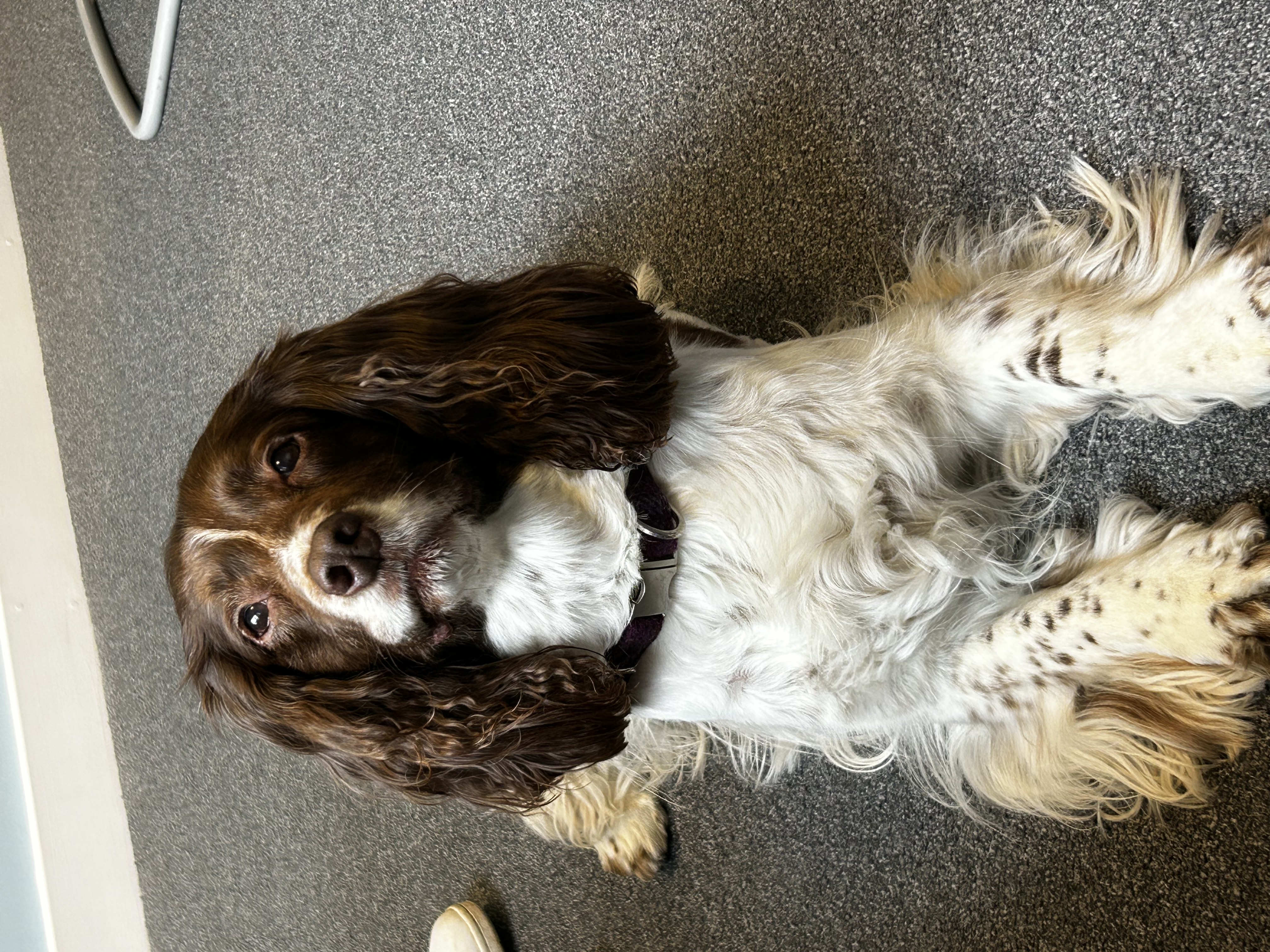Millie, my golden child, my fabulous Springer is 11 and starting to show her age a little; well as much as any card-carrying Springer will ever admit to! However, it is the downside of sharing your life with a dog that they do get older and with that comes the inevitable range of physical and behavioural changes. One such change that often goes unnoticed or is misunderstood is noise sensitivity. Just like humans, older dogs can become more sensitive to loud sounds and noises, which can have a significant impact on their overall well-being.
We have noticed over the last few months that Millie has been much more sensitive to some noises she has never bothered with before. A cough or a sneeze from someone is enough to cause her to leave the room. She has been vocalising more to the sound of the wind, of other dogs barking and sometimes the sound of people speaking.
Signs of noise sensitivity you may see in your older dog:
- Older dogs can bark more when they become more sensitive to noise
- Some dogs may try to hide in safe places such as under furniture or behind something on hearing loud noises.
- Increased anxiety due to noise sensitivity can appear as panting and shaking in older dogs.
- Some dogs can appear reluctant to move, sometimes it’s refusing to jump in the car or they stop jumping up on the couch
Causes of Noise Sensitivity
- The onset of aches and pains from age related conditions can contribute to noise sensitivity. When in pain, dogs are much more sensitive to their environment and sudden noise can cause tenseness and sudden movements which make pain worse.
- Just like humans, dogs can start to lose their hearing. As they get older, their ability to hear high-pitched sounds or loud noises reduces and they often become more sensitive to certain sounds as a result.
- As our dogs age they can show increased anxiety or become easily confused and this is exacerbated by noise
Managing Noise Sensitivity in Older Dogs
- The first step is to contact your vet and/or physio to rule out any underlying medical issues and they may recommend appropriate treatments or medications.
- Working with a behaviour practitioner on desensitisation and counter conditioning can help your dog deal with noise sensitivity
- Create a nice cosy safe place for your dog so they can take themselves off there when they're feeling anxious.
- Playing music such as Taiko drumming can help mask noise and help your dog relax.
We decided to see the vet and the physio first with Millie and she did have some pain. Spaniels are not great at showing pain overtly, they continue with their busy lifestyle but the pain shows through in other ways and for Millie it was noise sensitivity. Some sciatic pain was the culprit and with physio and some pain medication she is much better and we can cough and sneeze freely now!

